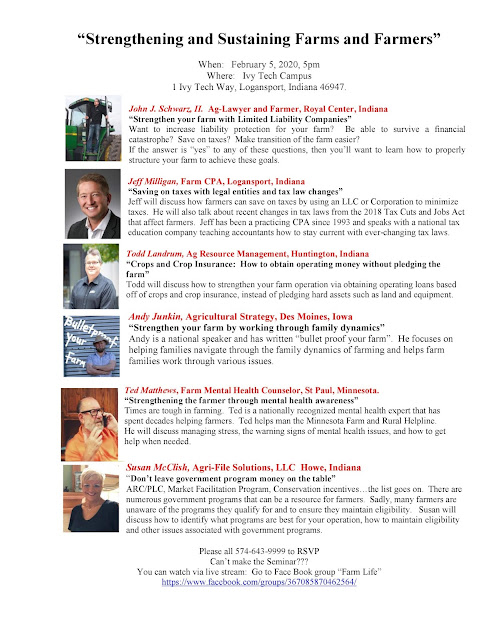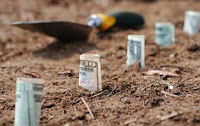Free National Farm Seminar "Strengthening and Sustaining Farms and Farmers" Join us for a free seminar featuring a dynamic group of local and nationally recognized individuals discussing the path farmers need to be on so as to strengthen their operations and also themselves. When: February 5, 2020 Where: Ivy Tech Community Campus, Logansport, Indiana. On February 5, 2020, at 5:00 pm, there will be a seminar in Logansport, Indiana, at the Ivy Tech Community Room, located at: 1 Ivy Tech Way, Logansport, IN 46947. Our seminar will focus on ways to strengthen your farm and yourself. We have been blessed with being able to bring in a strong lineup of speakers from across the County. For many farmers, times are still very tough in agriculture. The down economic conditions continue to persist with some saying such will continue for quite some time. For many farms, survival will not come down to growing the mos





